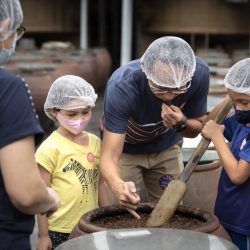SingaporeMotherhood | Parenting
April 2023
12 Things to Know when you have a Child on the Autism Spectrum in Singapore
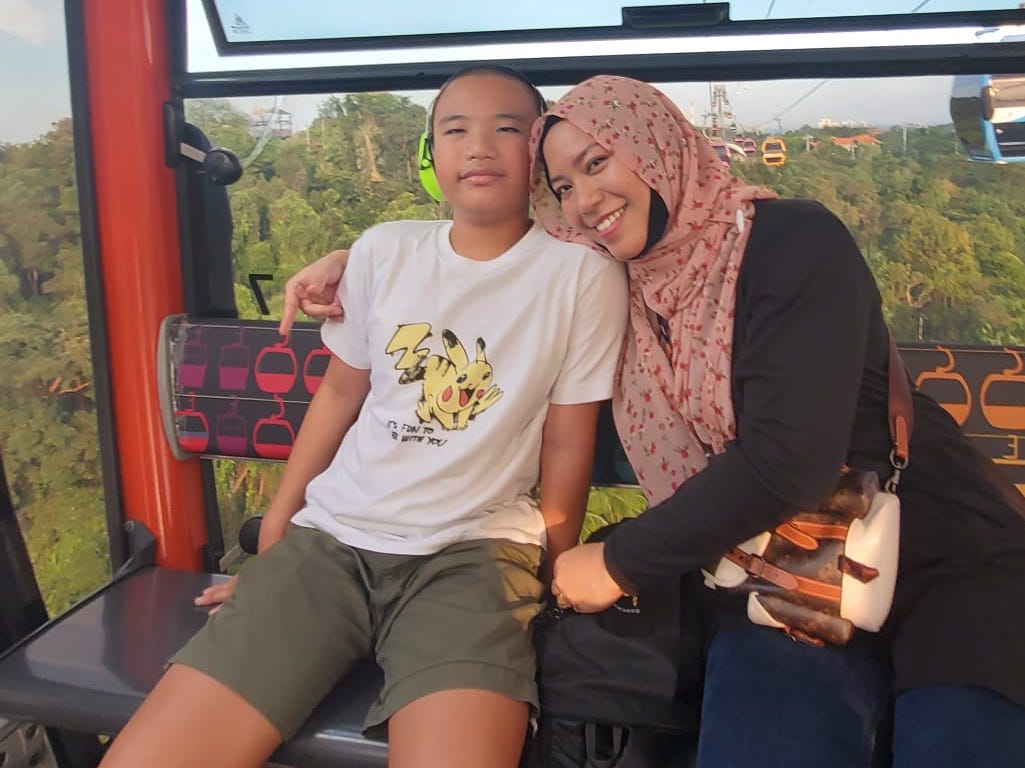
It is 4am at the emergency department of the hospital. Doctors have just managed to bring Norfadillah’s heart rate down — after four tries — from a panic-inducing 235 beats per minute. All Dillah can think about is her four-year-old son Yusuf, who is on the autism spectrum. “I want to go home now, I am worried about my son. I have been away from him for too long,” Dillah tells her doctor. A few days later, Dillah has surgery to remove the extra vein in her heart that is causing the erratic heartbeats. “I went home the next day after surgery,” she recalls. “Being away from Yusuf made me worry so much.”
Yusuf is now 13, but for Dillah, 40, the worries remain. Apart from the heart issue, she has also battled a series of health problems including depression, anxiety disorder, chronic migraine, panic attacks. She has also been diagnosed with mild autism.
(See also: Parental Stress, Anxiety, and Burnout: are they happening to you?)
I thought, “God, you give me so many challenges. But I don’t feel the anxiety anymore. If this is what God wants for me, I will take it, but at the same time, I have to equip my son.” As such, Dillah works as a parent coordinator at Play.Able at Rainbow Centre (Margaret Drive), a special education school where her son Yusuf is a student.
Play.Able is an initiative by Be Kind SG that supports special needs families through:
- Curated educational materials and resources that are complementary and supplementary resources for their child’s developmental milestones;
- A safe and non-judgmental space for children to play with their peers and develop their social skills;
- Community bonding events and knowledge sharing workshops;
- Employment opportunities for caregivers
She is also a parent champion in Rainbow Centre Margaret Drive’s parent support group, Sparkle Parent Network, which plans activities for parents and caregivers of children with special needs.
1. Accepting the diagnosis can be hard
Yusuf was always a strange child. As a baby he had difficulty sleeping, and as he was growing up, he played with toys differently from other children. When he was around 18 months I could see that his development was different from other babies.
There was very little eye contact. He liked to line things up, a line of cars, a line of blocks. And he was fixated on certain things. He could play with a spoon for one hour. And he started stimming (self-stimulatory behaviour — repetitive or unusual body movement or noises).
He did not talk, he had no words, he was shouting all the time, he was very impatient, he would get angry. He only started to walk at 19 months.

By the time he was two years old it was clear cut. He did not socialise with the other children whom I had invited to his birthday party. I told my husband (Isa, 53), “I think our son has autism.”
At three years old he was diagnosed to have severe autism. I had already known that in my heart but for my husband, it was like the whole world had crashed. He was like, “What are we going to do now? How is he going to feed himself in the future? How is he going to work?”
It was very tough, especially as a young mother. I cried a lot. You’ll be thinking how am I going to cope? Did I pass it to him? And then you have this grieving period.
(See also: Resources for Families of Children with Special Needs in Singapore)
2. Embrace therapy; it can help
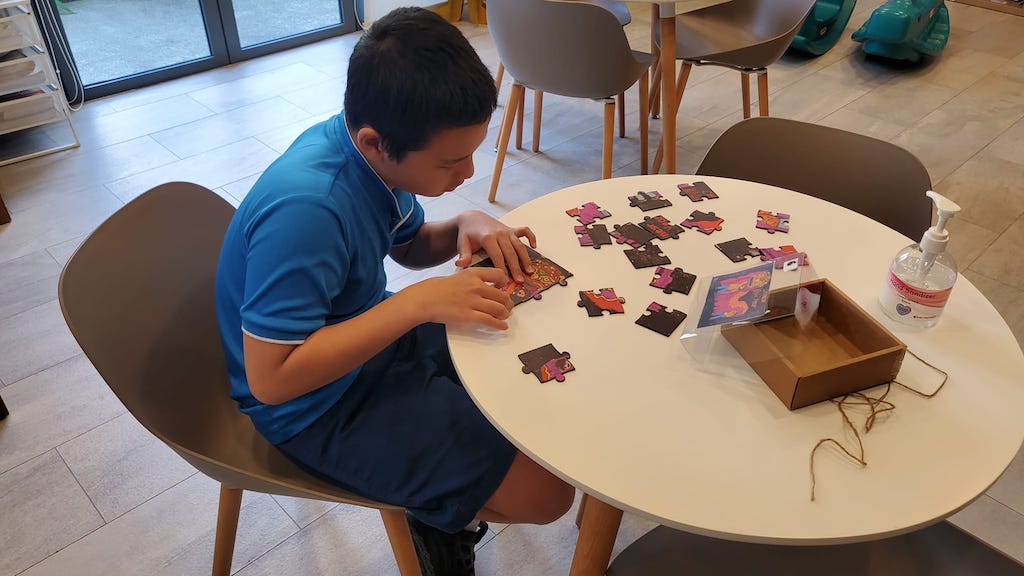
From age three to six, Yusuf had private therapy. Then the therapists told me that I should put him in a school setting, and recommended Rainbow Centre (RC). So he was at RC three times a week, and at therapy twice a week. And on top of that he was also in a mainstream kindergarten because I wanted him to socialise with neurotypical kids.
Rainbow Centre helped me a lot. Yusuf was a very fussy eater. He could only eat yellow coloured food like Mamee, pasta, or fries. Now he can eat a good variety of food, thanks to a teacher here who suggested feeding therapy and introduced new food to him. He has started to eat fruits and rice. Vegetables are still a work in progress, but he’s begun to eat carrots. It’s amazing.
Throughout my journey there was always someone to guide me along, whether from KKH or from the schools and organisations. So don’t worry, you will not be lost.
(See also: Special Education and Inclusive Preschools and Schools in Singapore)
3. People will judge
We get stares and you know, that “tsk” sound. I have very thick skin and I can be quite confrontational. So I go like, “Yusuf, you cannot make so much noise you know, people are looking at you.” It’s like come on, you have kids of your own. You should understand, right? If someone’’s baby is crying you don’t look at them and go “tsk”, you empathise with them.
Of course, when Yusuf was younger, he used to scream. The whole shopping mall could hear him. Sometimes he would lie on the floor, or knock his head on the wall. He would jump into any form of water, even an aquarium. Also, he would just dash across the road. So I had to leash him, and people would look at me funny.
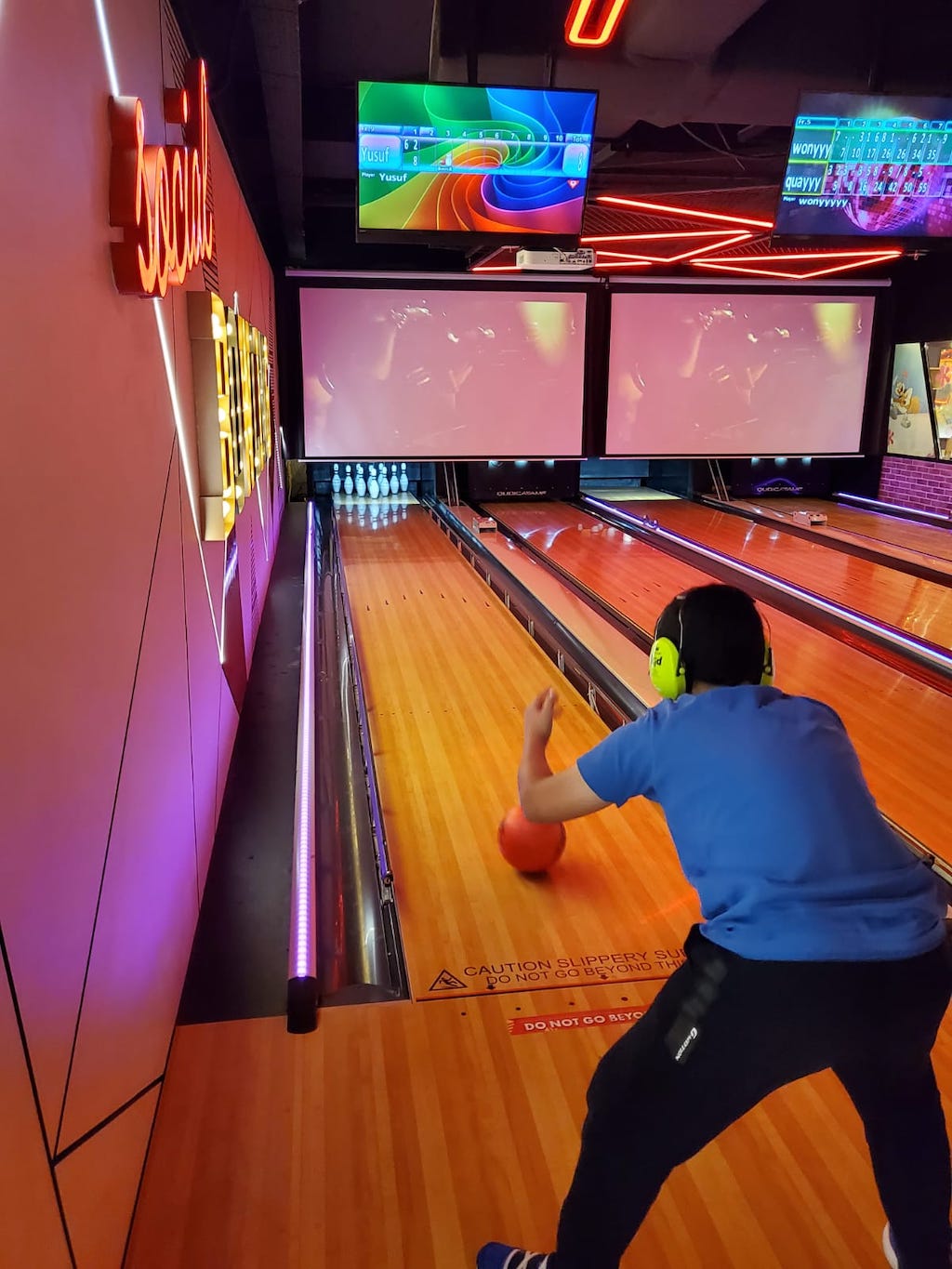
4. People may not understand
It was during COVID. I was at the hospital to collect my medicine, but they didn’t allow Yusuf to go in with me. I told them that my son has special needs, he has to come with me. Oh just let your son sit here, and you go collect. But the collection place was quite a distance away. You couldn’t expect Yusuf to sit there by himself. What if he ran away? Were they going to be liable? I was so upset, and the person at the entrance was very rude. Thankfully a doctor passed by. I was crying as I explained the situation to her. She intervened and let Yusuf go with me. That was tough. I almost had a panic attack.
5. But some people will be kind
When Yusuf was three to six years old, we could not take public transport. He would scream and drag people out from their seats so that we could sit together. Thankfully, now that he is older, he is okay. There are people who give up their seats to us. For instance, Yusuf will sit down, and the person next to him will get up and offer the seat to me. People are more aware of those with special needs, and more tolerant, now.
One time Yusuf was standing at the front of the train carriage looking out, and I was further away from him, holding his bag. A secondary school couple was standing near him. I think they could tell that he has special needs. They thought he was alone, and lost, and they were so concerned. It was so cute. They were looking out for him.
6. Their educational journey will be different
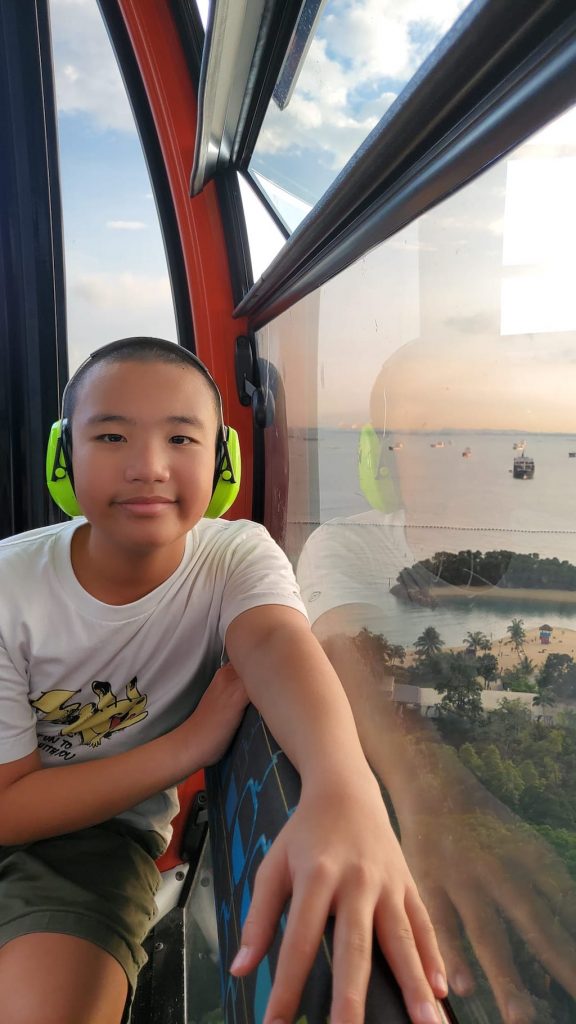
Rainbow Centre offers vocational training for the students here. We have a cafe so they see which children are capable of learning how to work, and help them transition to work in the cafe. RC also has partnerships with other organisations to bring the kids out and train them to do other jobs.
My son is 13 now. Even if I want to think ahead, it can be very stressful. But I am going to keep our options open, and continue to teach him to be functional. For instance, he can now shower himself. I also teach him to be aware. Awareness is very important. Problem solving is also very important. For example, what would he do if he was caught in a particular situation? So things like these, and daily living skills, are important to me.
I wouldn’t expect Yusuf to have a job in an office. That’s too much of a big dream, to be honest. If he can be useful at a restaurant, cleaning up, or in the kitchen, that would be good. Or perhaps helping out in a laundry. Just to earn some money for himself, and do something useful.
7. You will learn to appreciate the little moments
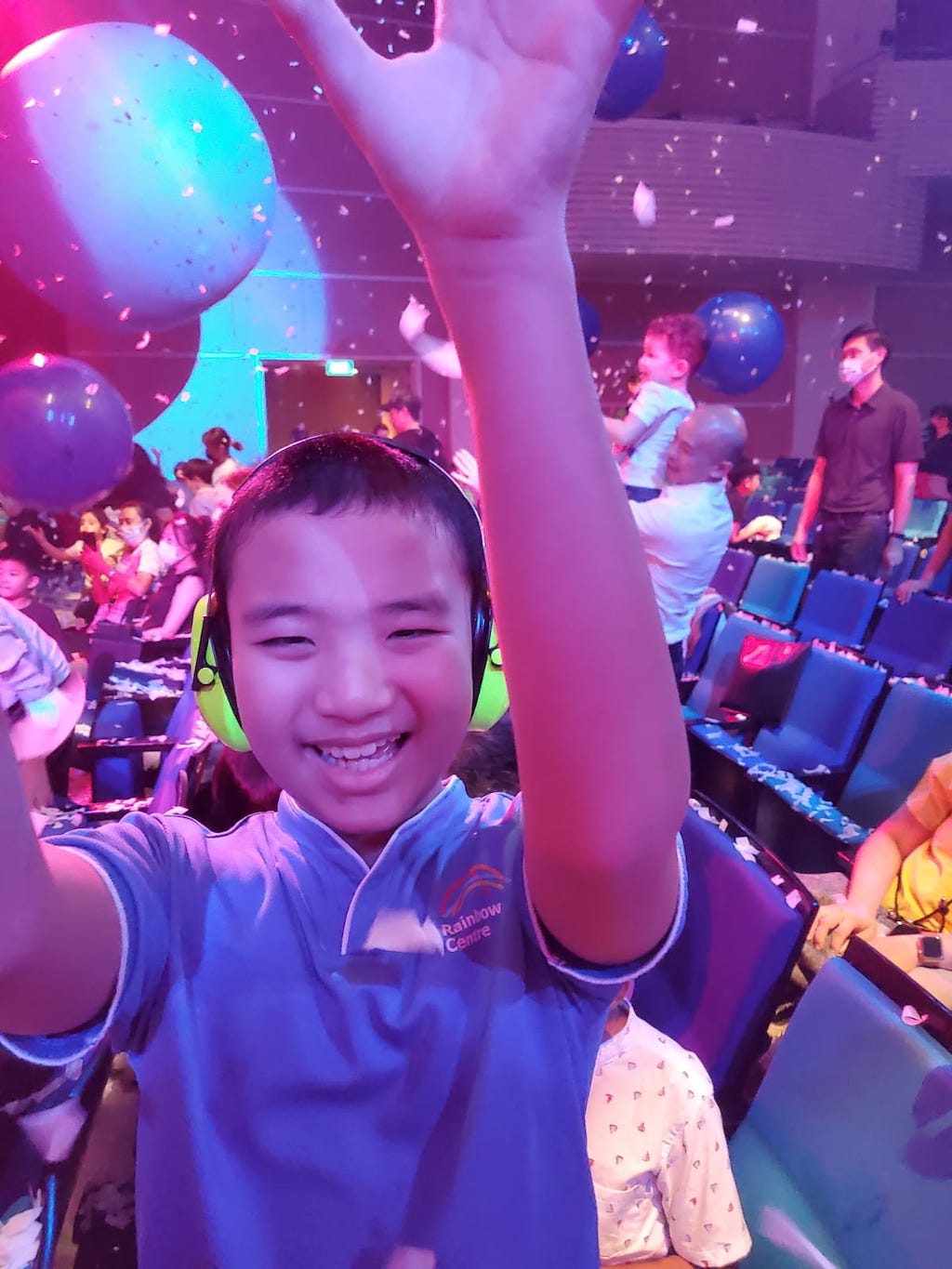
WeI love to go to the movies. I like to get Yusuf exposed to many things because like me, he has anxiety issues. I have a fear of heights but I went up in a hot air balloon because I wanted to overcome that fear. Similarly with my son, I want to push him to overcome things.
Going to the movies is one of them. Initially, he acted out. That was when he was about six years old. Now he doesn’t, but he still uses his ear muffs to minimise the sound. He made some noises the first few times, but it was okay. My husband and I took turns to bring him out, and then come back in again. And after a few sessions he was fine. As long as he has popcorn, he is ok. Or he might even fall asleep, as he did recently while watching Shazam!
Before going out I will preempt him. You always have to preempt the child, because a lot of individuals on the autism spectrum have anxiety issues. I tell him, “We are going here, this is what we are going to do.” And of course, choose the corner seats.
8. Don’t underestimate them
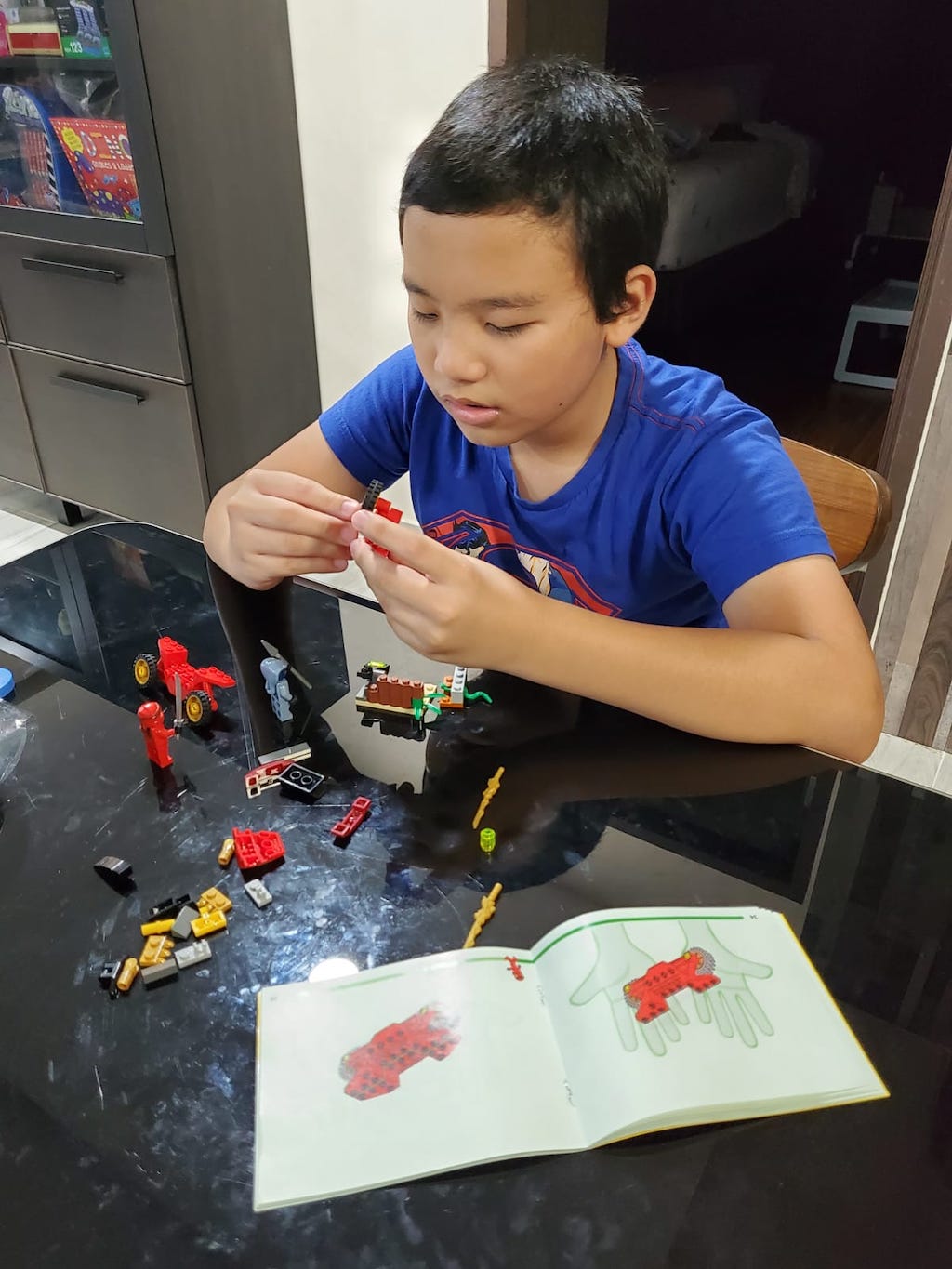
We went to Penang three years ago, when he was 10. There was a flight delay because of bad weather and we had to stay in the plane for two hours. He was ok. I was not. I started to panic, thinking what’s he going to do? But he was just sitting there calmly, watching something on the phone, with his ear muffs on.
I am very grateful to have a very good support system. Communication between parents and teachers is very important too. Rainbow Centre does not do the national curriculum, but they try to customise as much as possible to the child’s level and ability. Yusuf can now do simple Maths and English. This year, his CCA is dancing and he did a kpop dance performance in school. In the last two years he was in robotics. He loves building LEGOs too.
9. You will learn so much about yourself
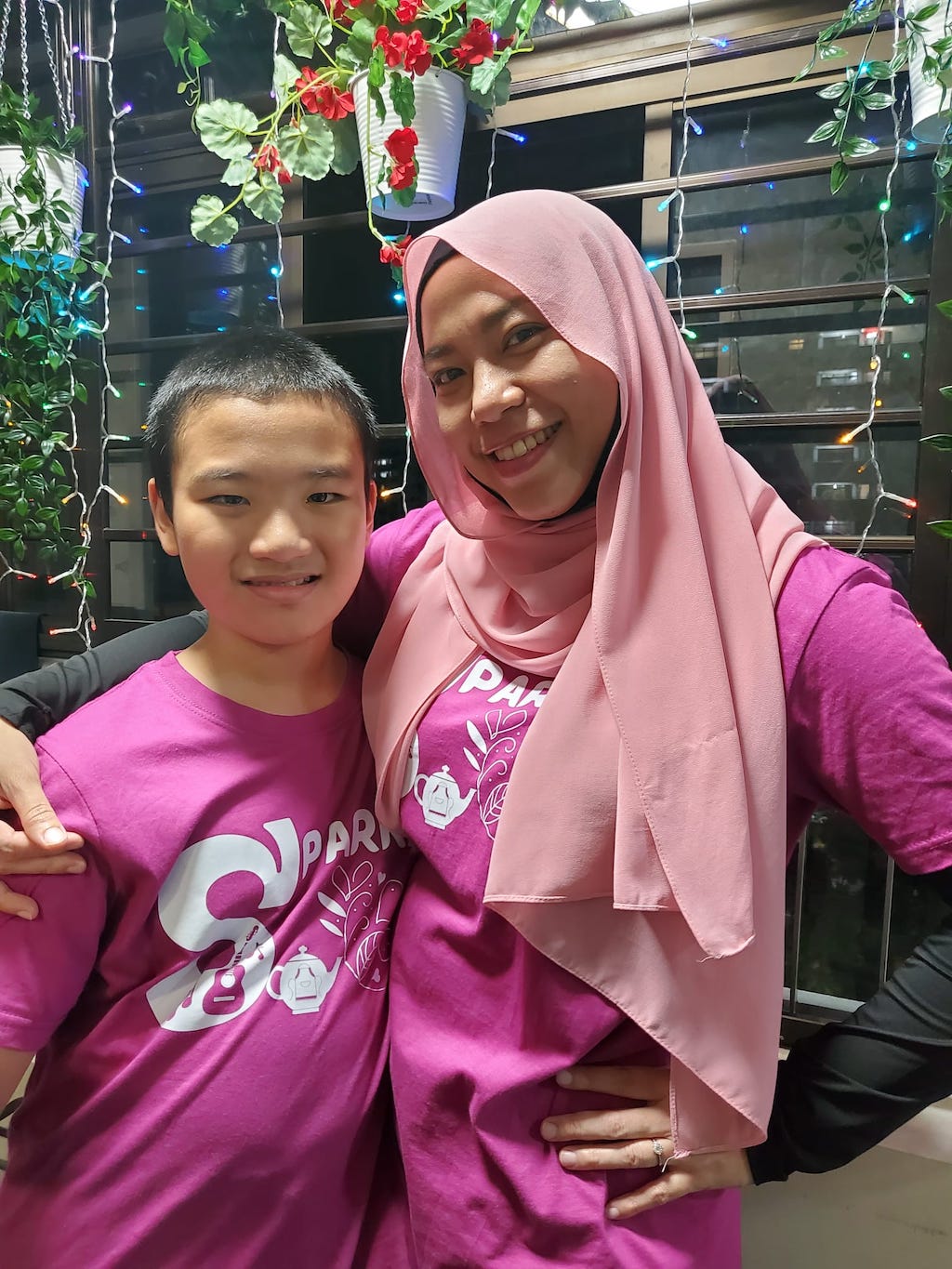
Having a child with special needs has really taught me patience, and definitely love. To love, and not be judgmental. When you have a child with special needs or know someone with special needs, nothing else matters. You realise oh, that friend I had when we were younger, maybe he had special needs. You never know. And sometimes you see somebody who appears crazy? They might have autism. Anybody could be like that. All this opens you up to a different world.
10. Plan for the future
We made a will even before Yusuf turned two. If anything happens to me or to my husband, my sister will be Yusuf’s guardian. There’s also something called SNTC, a special needs trust, which we are going to do this year.
(See also: SNTC offers Peace of Mind for Parents of a Special-needs Child)
11. Take it one day at a time
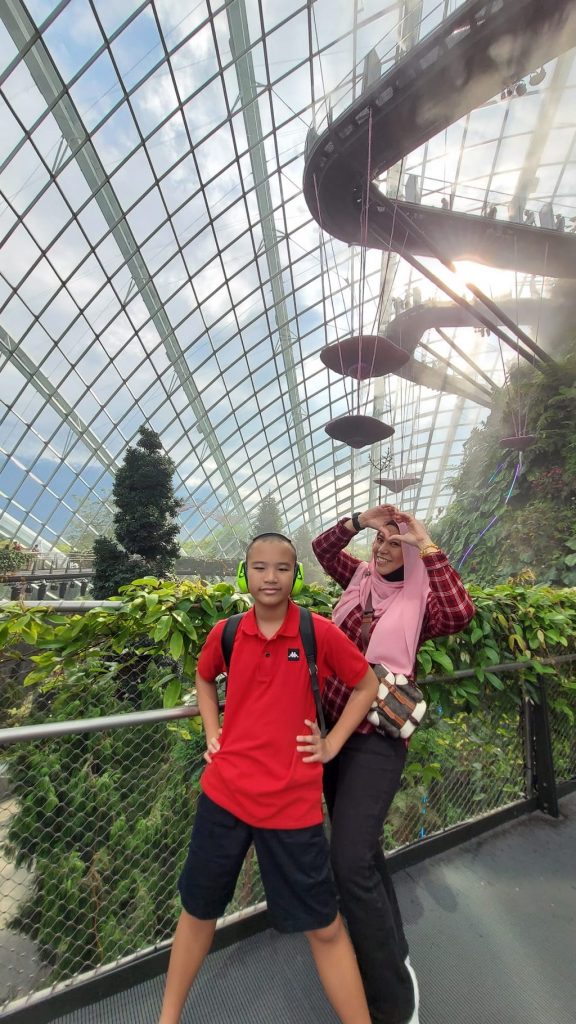
Every year there is something new, because there will always be changes, right? But Yusuf gets better as he grows older, with the therapies and interventions.
Right now we are going through another tough time because he is undergoing puberty. But he’s also able to understand more. He has better eye contact, and he can converse.
So I find that there is some light at the end of the tunnel. Being in RC, and volunteering, have helped me a lot. Being closer to God has helped too. Now I just want to equip Yusuf with all the knowledge I can, and teach him to do whatever he can do.
I take it bit by bit, based on Yusuf’s ability. What can he do this year? I don’t go by age, because you can be 13 years old, but your mental capacity is different. So I see what he is capable of, and let him go little by little. This year he has learnt to go to the public toilet by himself. Next year, I may let him take the lift by himself. It’s a different goal each year, a small goal. I don’t want to pressure him, or pressure myself.
12. For parents who have children on the autism spectrum
You know your child best. Don’t be pressured by what other people tell you. Don’t compare. At the same time, don’t underestimate your child. Get support, it is very important. And remember to give yourself love. The well-being of caregivers is important too.
Autism in Singapore 2023
World Autism Awareness Day falls on 2 April. Each year, at least 400 new cases of child autism are diagnosed in Singapore. That is approximately one in every 150 children. According to Singapore’s Enabling Masterplan 2030, there continues to be an increase in the number of children diagnosed with autism here, due to greater awareness and early diagnosis.
The Autism Network Singapore (ANS) is an alliance of five social service agencies – Autism Association Singapore, Autism Resource Centre, AWWA, St Andrew’s Autism Centre and Rainbow Centre – which serve over 5,000 individuals from birth to adulthood.
As part of World Autism Awareness Month this April, ANS has launched an educational public campaign with the theme “Time to Act”. This calls for mainstream institutions such as schools, employers and public agencies to take a more proactive stance to champion and learn effective ways to support autistic individuals through different life stages in the community. It also includes a series of Open Houses to shed light on the diversity of autism and open more channels of support for autistic individuals and their families. Find out more at bit.ly/ansopenhouses
All content from this article, including images, cannot be reproduced without credits or written permission from SingaporeMotherhood.
Follow us on Facebook, Instagram, and Telegram for the latest article and promotion updates.




